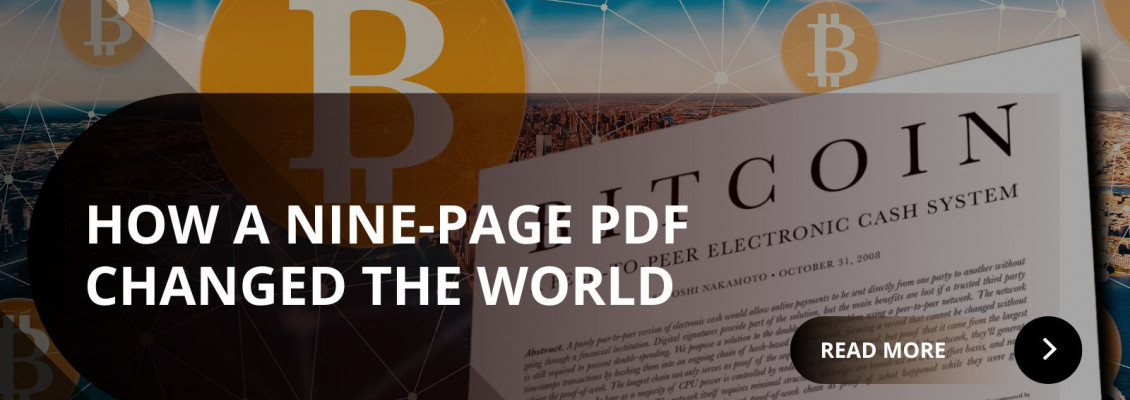
17 Years of Bitcoin: How a 9-Page Idea Sparked a Global Movement for Freedom and Fairness
Seventeen years ago today, on October 31, 2008, an anonymous figure named Satoshi Nakamoto shared a humble nine-page PDF with the world. It was titled “Bitcoin: A Peer-to-Peer Electronic Cash System.” Few could have imagined that this quiet moment, on the edge of a global financial crisis, would ignite one of the most transformative movements in modern history.
Bitcoin wasn’t just about money. It was about trust. It was about reclaiming ownership of value, identity, and information in a world where those things had been monopolized by banks, corporations, and governments.
Seventeen years later, Bitcoin has evolved from a cryptography experiment into a global symbol of freedom, transparency, and innovation.
A Global Shift Toward Financial Freedom
Billions of people around the world live without access to a stable banking system. For many, Bitcoin isn’t speculation, it’s survival.
In places like Venezuela, Nigeria, and Argentina, where inflation has destroyed national currencies, Bitcoin became a lifeline. It allowed families to store value, move money across borders, and rebuild livelihoods in ways their local economies could not.
Bitcoin broke the monopoly of geography.
It gave people a way to own something that no one could take away, not a bank, not a government, not inflation.
This is more than finance; it is economic dignity.
Technology That Restored Trust
At its core, Bitcoin solved one of the oldest problems in digital systems: how do you create trust between strangers without a middleman?
The answer was the blockchain, a transparent, tamper-proof ledger that anyone could verify, but no one could corrupt.
That simple principle has since inspired entire industries. From tracking clean energy credits to verifying supply chains and fighting corruption, blockchain technology is now being used to bring transparency to a world built on opacity.
Bitcoin didn’t just create digital money.
It created a framework for accountability, one that is open, auditable, and global.
Empowering People, Not Institutions
Bitcoin redefined what it means to “own” something in the digital age.
In a world dominated by centralized platforms, your data, identity, and assets are often rented, not owned. But on the blockchain, ownership becomes real.
You hold your private keys.
You control your value.
You decide your future.
This shift, from reliance to sovereignty, is reshaping how people view money, art, and even governance. Bitcoin inspired the rise of decentralized finance (DeFi) and digital ownership (NFTs), opening up creative and economic possibilities that were once unimaginable.
It’s not just about technology. It’s about reclaiming human agency in the digital era.
Real-World Impact and Innovation
The ripple effects of Bitcoin’s creation are now seen everywhere:
-
El Salvador became the first country to adopt Bitcoin as legal tender, pushing financial access to millions without banks.
-
Philanthropic organizations use Bitcoin to deliver aid directly, bypassing broken financial systems in crisis zones.
-
Green energy miners are turning wasted energy into digital value, accelerating investment in renewable infrastructure.
-
Artists, developers, and entrepreneurs across Africa, Latin America, and Asia are building new ecosystems of innovation without waiting for permission.
Bitcoin didn’t just inspire new money; it inspired a new mindset, one where people build their own systems when the old ones fail them.
The Human Side of a Digital Revolution
Critics call Bitcoin volatile or inefficient. But beyond the price charts, something profound is happening.
Bitcoin has become a language of hope, a way for people to say: We deserve better. We can design fairer systems. We can trust code over corruption.
It’s no longer just for the technologists or traders. It’s for the farmer in Kenya receiving micro-payments, the artist in Brazil minting her first NFT, and the family in Turkey saving in satoshis instead of a collapsing currency.
Bitcoin reminds the world that freedom isn’t given; it’s coded, mined, and earned.
A Legacy Still Unfolding
Seventeen years later, Bitcoin continues to evolve. It’s inspiring new technologies, from Layer 2 payment networks like Lightning to tokenized real-world assets, and shaping discussions about digital identity, privacy, and decentralized governance.
But its greatest legacy isn’t in market caps or codebases; it’s in the shift of mindset it triggered.
Bitcoin asked humanity to question the systems we’ve inherited:
Why should money lose value?
Why should trust be owned by institutions?
Why can’t we design systems that belong to everyone?
Those questions continue to echo, shaping a generation of builders, thinkers, and dreamers working toward a more open, transparent, and equitable world.
A Better Future, Block by Block
The Bitcoin whitepaper was only nine pages long. But its impact is measured not in words, it’s measured in lives empowered, voices amplified, and systems transformed.
Seventeen years on, Bitcoin remains more than a network.
It’s a symbol of what’s possible when technology serves humanity.
As we celebrate this milestone, one thing is clear:
The revolution didn’t start in a government hall or a bank boardroom.
It started with an email.
And it continues every time someone, somewhere, takes ownership of their future, one block at a time.
Stay Connected
You can stay up to date on all News, Events, and Marketing of Rare Network, including Rare Evo: America’s Premier Blockchain Conference, happening July 28th-31st, 2026 at The ARIA Resort & Casino, by following our socials on X, LinkedIn, and YouTube.

Leave a Comment